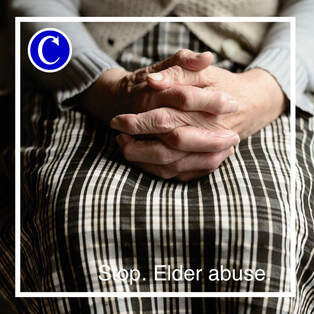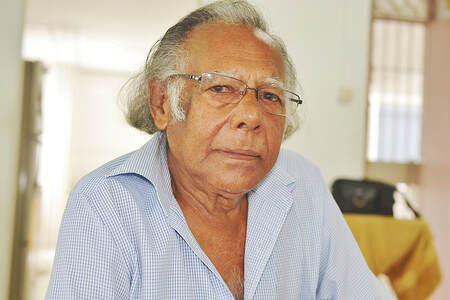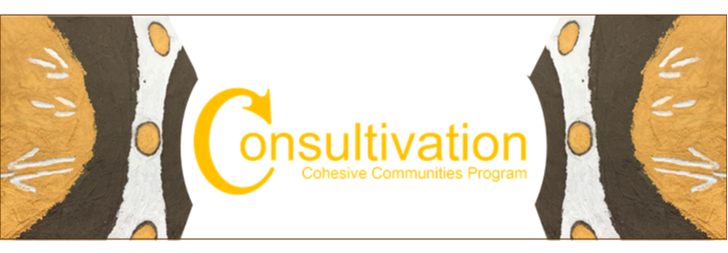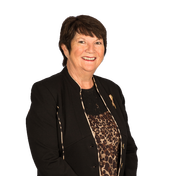|
By Jacqui Tibbits, Director  Elder Abuse: to think it doesn’t happen is ludicrous. Sad but true. Painful, yes. Frightening, absolutely. Yesterday, I read a dreadful article from the ABC News. It made me feel sick to my core. A young Mum with early onset dementia enters residential aged care for appropriate and quality care and support. Her husband is unable to care for her at home for he is living with motor neurone disease (MND) - already a devastating situation for this family. We know that in most cases accessing residential care for a loved one isn’t an easy thing to do. This decision is often full of anguish, guilt and pure raw emotions. The heading ‘Just so vulnerable’ was heavy with sadness, ladened with despair. I could feel their pain. ‘Just so vulnerable,’ is a quote from their daughter. Jeanette Post, the woman living with early onset dementia, was sexually assaulted while living in an aged care home by a worker. I cannot image what Jeanette or her family must have thought, felt or lived through since that time. Following the assault, Jeanette’s health actually declined and she died 3 months later. The article shared her husband has been in utter despair, devastated and left feeling helpless. This is only one story about elder abuse. Elder abuse is more common than what most people realise with up to 14% (AIFS, 2015) of older Australians experiencing abuse. In June 2015, this would have been approximately 500,000 older Australians! In 2018, with an assumption the 14% abuse rate remained static; this would be approximately 562,000 older Australians being abused. This is not good enough. We all have a role to play in addressing and stopping elder abuse. The most important thing we can all do is learn what elder abuse is, what the signs are and how to respond. Facts about elder abuse
Types of elder abuse There remains no one single definition of elder abuse in Australia. The WHO has adopted the definition that elder abuse is "a single or repeated act, or lack of appropriate action, occurring within any relationship where there is an expectation of trust, which causes harm or distress to an older person." Types of elder abuse include: Financial abuse is the illegal or improper use of an older person’s finance or property by another person. For example mum or dad helps to pay for house extensions or a granny flat then to be kicked out of the house. Other examples include stopping access to their personal funds; forging signatures, misusing enduring power of attorney or not returning change after shopping for them. Psychological abuse is the infliction of mental anguish, often involving actions that cause fear of violence, isolation or deprivation, and feelings of shame, indignity or powerlessness. For example, verbal threats, degrading behaviours including name callings and threats of institutionalisation, “Do what I’ll say or I’ll put you in a home.” Physical abuse is the infliction of physical pain or injury or physical coercion. For example, hitting, slapping, pushing, scratching or shaking an older person. It also includes the use physical restraints such as tying them to a chair or putting an older person in a chair they cannot get out of. Sexual abuse is sexually abusive or exploitive behaviour. For example, rape, indecent assault, sexual harassment or making an older person feel uncomfortable about their body or gender. Social involves preventing an older person from having social contact with friends or family or access to social activities. For example, moving them away from their community; isolating them from their friends, family members and neighbours; and not allowing use of or monitoring the telephone. Neglect is the intentional or unintentional failure of a carer to provide the necessities of life to another person for whom they are caring. For example, inadequate food and drink, lack of stimuli, lack of supervision (when relevant, for example the person has advanced dementia), poor hygiene and clothing; and inappropriate use of medicine. Signs of elder abuse Signs an older person is abused may include but is not limited to:
What you can do Understand you have a role to play in valuing our elders and stopping abuse. Learn about elder abuse and what you can do to stop it. Share your knowledge and experience with others. If you work in a job which interacts with older Australians, identify what systems are in place to recognise, record and report elder abuse; and what support is available to help the older person at this time. If none exist, develop and embed safe systems to support older Australians experiencing abuse. Most of all, “Speak up, no matter how much your voice shakes.” What we need to address elder abuse A broad range of initiatives we can do as a nation, community, family and as individuals to address and stop elder abuse include:
World Elder Abuse Awareness Day 2019 The United Nations has designated 15 June as World Elder Abuse Awareness Day to focus global attention on the problems of abuse of elders. Consultivation can help At Consultivation we can work with communities and organisations to help people understand the signs of elder abuse and how to respond to them. We currently work with people and organisations to address ageism, stigma and stereotypes of older people to create safe, inclusive and viable communities. ACT TO TODAY. At Consultivation we believe by helping organisations and people flourish we contribute to safe, inclusive and viable communities. References
ABC News Story: https://www.abc.net.au/news/2019-06-14/gary-cripps-jailed-over-ocean-grove-nursing-home-sexual-assault/11206158 ABS, 2015, 3101.0 Australian Demographic Statistics, June 2015, ACT ABS, 2019, 3101.0 Australian Demographic Statistics, September 2018, ACT Australian Government (AIFS), 2015, Elder Abuse, Victoria Australian Government (ALRC), 2016, Issues paper: What is elder abuse?, Queensland Elder abuse Prevention Unit, 2014, Elder Abuse, www.eapu.com.au, Queensland Jeter, L, 2011, Facts on Elder Abuse – Australia, Legislative Council WA, 2018, Final Report of the Select Committee in Elder Abuse, Western Australia United Nations, 2019, World Elder Abuse Awareness Day, Switzerland WHO, 2019, Ageing and life-course: Elder Abuse, Switzerland
0 Comments
Your comment will be posted after it is approved.
Leave a Reply. |
Jacqui TibbitsJacqui is a positive change management specialist with a penchant for public speaking. Susan JohnsonSusan has expertise in cognitive behaviour therapy, narrative therapy & mindfulness. Guest bloggersGuest bloggers are invited to contribute to the Consultivation blog. If you have an idea, concept or perspective you would like to share please contact Jacqui at Consultivation.
"Consultivation delivers topics skilfully and clearly."
Workshop participant "I have a better understanding of what impacts the aged care changes are going to have on our clients and business." Michelle
"Consultivation delivers topics skillfully and clearly. The knowledge gained will give me guidance in doing my job and keeping up the goodwork." Mario
"Thanks to Consultivation I understand that changes are on-going in the organisation and sector to keep clients in their homes longer."
Nancy "Due to today's training I will be more open minded with staff and pull together and ask for help to improve when needed."
Carol Archives
June 2020
Categories
All
|




 RSS Feed
RSS Feed
